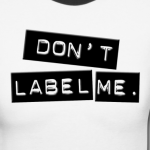For some, “Communion Eucharist” might seem a bit repetitive. But “communion” and “Eucharist” are not the same thing: communion refers to the joining together or union of two or more things or people to create something new [Latin, cum (“with”)+mūnus (“gift”)].[1] Eucharist, however, refers to the Greek word for “gratitude” or “giving thanks” [Greek εὐχαριστία, … Continue reading “BlogPost: World Communion Eucharistic”
Category: inclusivity
BlogPost: Eucharist as Embodied Covenant
Sister Margaret Scott (see previous post) skillfully weaves the liturgy of the Easter Vigil (a lot of liturgy and a lot of scripture) into an example in the Roman Catholic tradition (and some Protestant traditions) of how the Eucharistic meal reflects the covenants God has made with God’s people through Israel and Jesus the Christ. … Continue reading “BlogPost: Eucharist as Embodied Covenant”
BlogPost: Eucharist As Catalyst for Social Justice
The heart of my studies has been pushing me deeper into a realization of the power of the Eucharist (the ritual with bread and wine) and eucharistic practices (figuratively and literally gathering diverse people around tables of fellowship and equality). In reading about Reformed, Roman Catholic, and other perspectives about the Eucharist, I am finding … Continue reading “BlogPost: Eucharist As Catalyst for Social Justice”
BlogPost: Faith Fight – Fountain Hills, Arizona
“Faith Fight”—that’s what the local news is calling it. Eight churches in Fountain Hills, Arizona, led by the Rev. Bill Good, pastor of Fountain Hills Presbyterian Church (PCUSA), have posted banners announcing a sermon series called “‘Progressive’ Christianity: Fact or Fiction.” Their basic intent is to attack progressive Christianity as not being Christian. Sadly, the … Continue reading “BlogPost: Faith Fight – Fountain Hills, Arizona”
BlogPost: Labels
This past Sunday I spoke about perserving our history while remaining true to the present, and trying to look forward to see what might be around the corner. I used the word “conservative” to describe the work of historians. Then, at this week’s Wednesday morning Lectio Divina Bible study, the issue of labels came up. … Continue reading “BlogPost: Labels”





